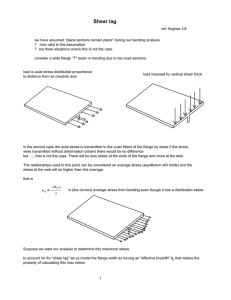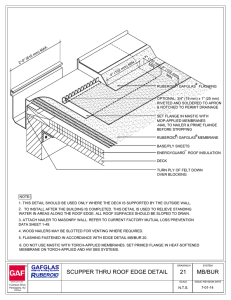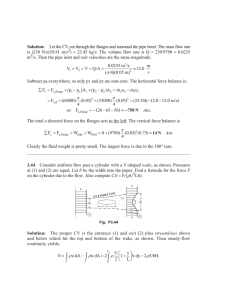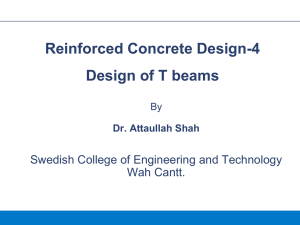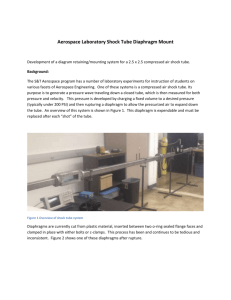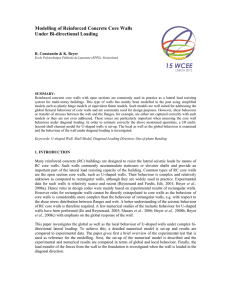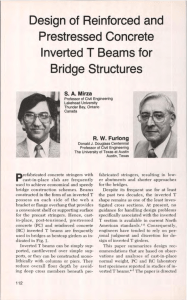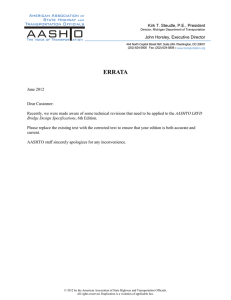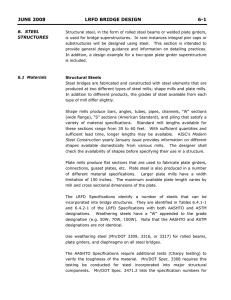1.051 Structural Engineering Design Recitation 4
advertisement
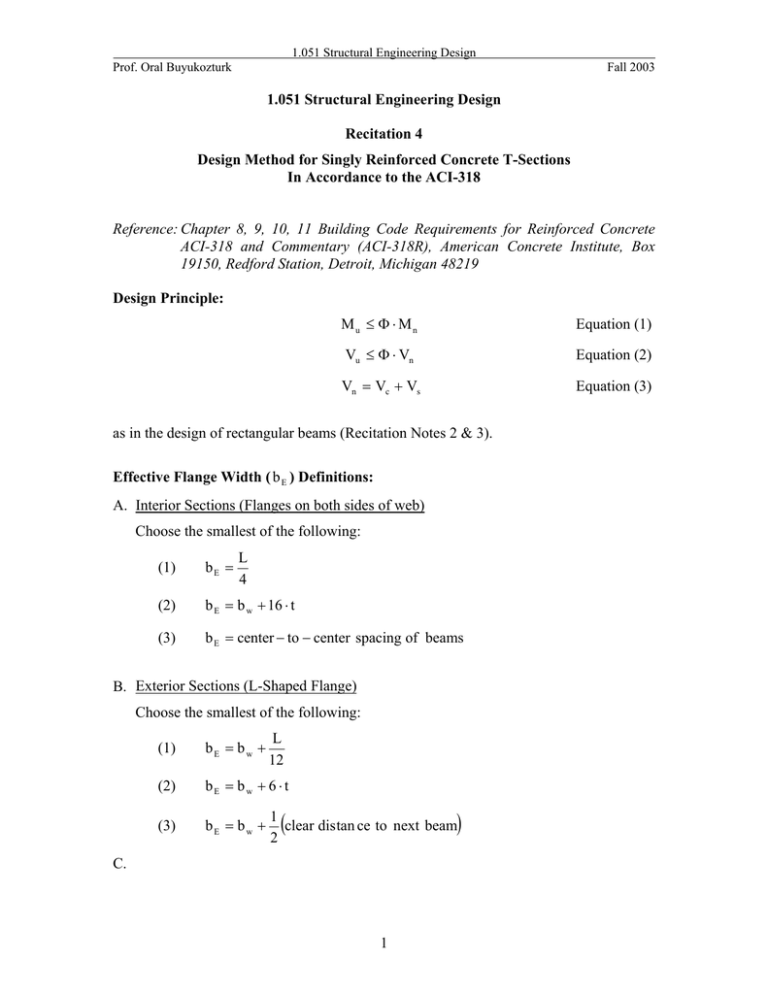
1.051 Structural Engineering Design Prof. Oral Buyukozturk Fall 2003 1.051 Structural Engineering Design Recitation 4 Design Method for Singly Reinforced Concrete T-Sections In Accordance to the ACI-318 Reference: Chapter 8, 9, 10, 11 Building Code Requirements for Reinforced Concrete ACI-318 and Commentary (ACI-318R), American Concrete Institute, Box 19150, Redford Station, Detroit, Michigan 48219 Design Principle: Mu ≤ Φ ⋅ Mn Equation (1) Vu ≤ Φ ⋅ Vn Equation (2) Vn = Vc + Vs Equation (3) as in the design of rectangular beams (Recitation Notes 2 & 3). Effective Flange Width ( b E ) Definitions: A. Interior Sections (Flanges on both sides of web) Choose the smallest of the following: L 4 (1) bE = (2) b E = b w + 16 ⋅ t (3) b E = center − to − center spacing of beams B. Exterior Sections (L-Shaped Flange) Choose the smallest of the following: L 12 (1) bE = bw + (2) bE = bw + 6 ⋅ t (3) bE = bw + ( ) 1 clear dis tan ce to next beam 2 C. 1 1.051 Structural Engineering Design Prof. Oral Buyukozturk Fall 2003 Isolated T-Sections bE ≤ 4 ⋅ bw t≥ where bE bw L t = = = = 1 bw 2 effective flange width web width span length of beam flange thickness Moment Equations: Case 1: Neutral Axis within Flange (a ≤ t) ρ ⋅ fy ⎞ ⎛ ⎟ M u ≤ Φ ⋅ ρ ⋅ f y ⋅ b ⋅ d 2 ⋅ ⎜⎜1 − ' ⎟ ⎝ 1 .7 ⋅ f c ⎠ Flexure design is exactly the same as that of singly reinforced rectangular beams because the concrete tension zone is ignored entirely. Refer to Recitation Notes 2 for design procedures. Case 2: Neutral Axis below Flange (a ≥ t) a⎞ t ⎞⎤ ⎡ ⎛ ⎛ M u ≤ Φ ⋅ ⎢C 1 ⋅ ⎜ d − ⎟ + C 2 ⋅ ⎜ d − ⎟⎥ 2⎠ 2 ⎠⎦ ⎝ ⎝ ⎣ where C1 = 0.85 ⋅ f c' ⋅ b w ⋅ a C2 = 0.85 ⋅ f c' ⋅ (b E − b w ) ⋅ t d = effective depth t = flange thickness T − C2 a = 0.85 ⋅ f c' ⋅ b w T = As ⋅ f y Maximum Steel Provision: As,max = 0.75 ⋅ As,b 2 1.051 Structural Engineering Design Prof. Oral Buyukozturk where Fall 2003 C 1,b + C 2 As,b = C 1,b = C2 = 0.85 ⋅ f c' ⋅ (b E − b w ) ⋅ t ab = ⎛ ⎜ ⎜ 0.003 β 1⋅ ⎜ f ⎜⎜ 0.003 + y Es ⎝ d = effective depth of beam fy 0.85 ⋅ f c' ⋅ b w ⋅ a b ⎞ ⎟ ⎟ ⎟⋅d ⎟⎟ ⎠ Shear Equations: ⎛ V ⋅d ⎞ Vc = ⎜⎜1.9 ⋅ f c' + 2500 ⋅ ρw u ⎟⎟ ⋅ b w ⋅ d Mu ⎠ ⎝ Vs = Av ⋅ f y ⋅ d s Shear design of T-sections shall conform to the design procedure of rectangular beams. Note that shear force is assumed to be resisted by the web only because the flange thickness is too thin to make significant contribution to shear resistance of a section. Refer to Recitation Notes 3 for shear design procedures. =============================================================== Basic Flexure Design Procedure: 1. 2. 3. 4. 5. 6. Determine factored moment from given loading conditions Determine effective width of flange Find out whether the neutral axis is within flange or below flange Locate the neutral axis position and hence the parameter “a” from the factored moment value Determine required steel area Check maximum steel provision allowed. If the required value is greater than the allowed value, increase section size. Otherwise, flexure design is complete and subsequent designs can be carried out (i.e. shear design and serviceability checks). 3
